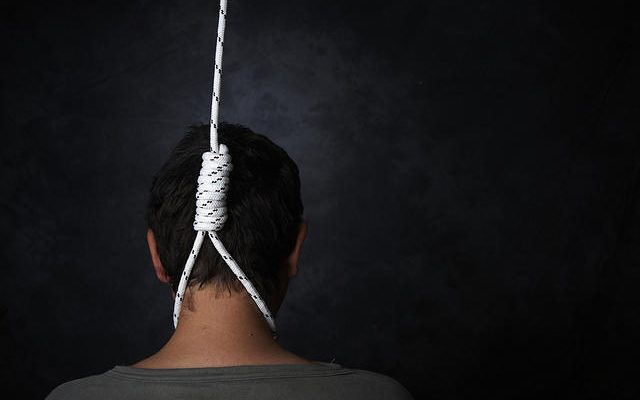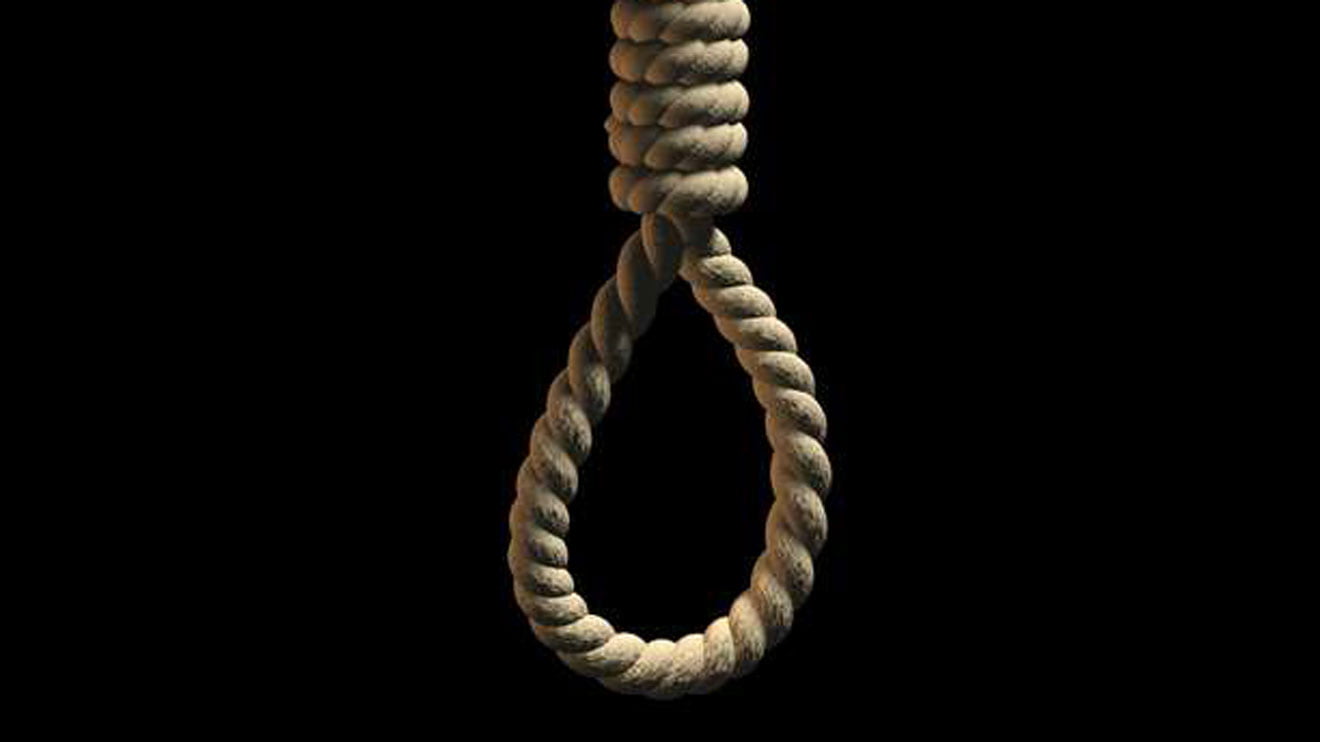Suicide! the trending gists in the last few weeks. Before then, there had been isolated cases of frustrated citizens choosing suicide as quick escape route to the many, and everyday challenges, of survival.
The incidents of the past few days have raised immediate concerns having occurred in quick succession.
Sunday, March 19, a lady known as Emerald, plunged into the Mile 2 creeks at Mazamaza on a suicide bid but was rescued by some good Samaritans. Later same day, the state witnessed the more celebrated story of Dr. Allwell Orji who stopped his car in the middle of the popular Third Mainland bridge, and took a dive into the lagoon. His mutilated body was fished out three days after.
On Friday, another two suicide attempts were recorded. The more famous of the two is the case of the aged woman, Abigail Ogunyinka, from Ketu who jumped into the lagoon at Ebute Ero, but was rescued by vigilante fishermen. The police authorities in Lagos, led by Fatai Owoseni, named one Taiwo Titilayo as the second lady who made another suicide bid off Third Mainland Bridge on Friday.
An interesting dimension to the ugly incidents is that most Nigerians are not even aware that the act of attempting a suicide is frowned at by the Nigerian constitution. Indeed, it is considered a criminal offense punishable with a year’s imprisonment!
By virtue of Section 327 of the Criminal Code “Any person who attempts to kill himself is guilty of a misdemeanor, and is liable to imprisonment for one year”. The penal code (Nigeria Penal Code, Chapter 27, Section 327) isn’t shy of making provisions, “Any person who attempts to kill himself is guilty of a misdemeanor, and is liable to imprisonment for one year.”
The law, as it stands, exists to penalise the hapless ones who fail to complete their mission, while the successful ones, with greater liability, who are now beyond the reach of the same law, are exempted from punishment.
Although attempted suicide is a crime in Nigeria, actual prosecutions against those who attempt it appear to be rare. However, a significant number of those who make an attempt to terminate their lives may have a wide range of psychological, economic, personality and social pathologies that push them to the cliff of mental disequilibrium, such that they resort to such a seeming absurdity.
The big question is, why are Nigerians jumping to their deaths, using the Lagos lagoon as a safe haven for a quick trip to the world beyond? Here are 11 reasons citizens may be expressing absolute disgust with their lives and choosing suicide as get-away from all the challenges of life:
1. Spiritual Bewitchment: There are many who believed that the doctor that jumped into the Third mainland bridge, did so by ‘remote control’. Since the driver had confessed that his ‘oga’ had picked a call before ordering him to halt while he jumped into the lagoon. If you watch a lot of Yoruba movies, and little of nollywood you may not find it hard believing this.
2. Depression: According to Dr. Raphael Ogbolu, a Consultant Psychiatrist with the Lagos University Teaching Hospital, LUTH, hopelessness is more likely, the strongest indication that will warrant someone to kill him or herself. “A medical condition like depression alters the way one thinks and makes you ‘truly’ believe that there is no hope”. The case of Dr. Orji cannot be far-fetched as it was reported that he had failed a major exam. To him, all hope was lost, and then the essence of living is lost. This is traceable to virtually all cases of suicide in the country.
3. Economic Hardship: The economic recession and inflation has had its toll on Nigerians, particularly ‘the common man’ who is either struggling to keep his/her business afloat or feeding from hand to mouth. So is the case of Abigael Ogunyinka, the aged woman who had borrowed money from a Micro Finance bank to run her ‘amala business’ and had defaulted to the tune of N150,000.00. Mama decided to end her life because of her inability to pay her debt and the embarrassment she’s likely to face. With interest rates remaining at double digits, what are the possibilities that many more loan defaulters won’t reason the way mama Abigael did?. Bala Zakka, an economist could not agree less about the effect of the economic hardship on people. He said, “the country has failed to think towards that direction, people are suffering economically, companies are gearing towards closing up and it is having a ripple effect on workers, it is very psychological and the holding limits is fast being exceeded”.
4. Drug Abuse: In Nigeria, a higher percentage of youths and middle-aged have had a taste of banned intoxicating substances; Indian hemp, marijuana, codeine, cocaine, alcohol, to Name a few.. Many have blamed their addiction on lack of job, peer pressure, motivation and so on. These substances are abused as the mind craves for more to take the worry away. The trend is fast becoming a norm as youths no longer hide while abusing these substances. Although, no recent reported incidence has been traced to drugs, it has had its fair share in suicide cases.
5. Mistakes: The decision to commit suicide due to mistake or negligence as the case may be is narrowed down to how the victim pre-empts the reaction of people when they find out their reasons for committing suicide. Again, Mama Abigael probably had started to blame herself in the first place for collecting the loan for her amala business that is looking impossible to pay back. Mama’s example to intending loan collectors is; “do not collect loan if you are not sure of how to pay back, and if you do, Lagos lagoon is just a bus ride away”.
6. Unemployment/Financial problem: With a poor economy, many people lose their jobs and look for new ones, but since the competition is fierce, landing a new job, and a good one at that, can be difficult. In many cases being unemployed not only makes people feel as if they have no purpose in life, it can lead to depression over lack of an income as well. Employment provides most people with a sense of purpose and belonging to a specific group or company. The financial stress can take a major toll on a person’s mental health. People who are struggling financially sometimes see no end in sight to their debt and bills. In Nigeria’s difficult economy, most people are living on the edge because of unemployment or underemployment.
7. Relationship problems: Some people have difficulties making friends and maintaining a close group for socialization. Others struggle with staying in abusive relationships just so that they can avoid feeling isolated and lonely, not feeling appreciated, or going through break-ups. As far as romantic relationships are concerned, the act of a break-up can trigger intense feelings of depression, anxiety, guilt and panic leading a person to deal with a lot of emotional pain. Often times most people commit suicide as a result of break-up.
8. Terminal illness/chronic pains: Many people with terminal illnesses that have no hope of improving their situation based on current science and medicine may become depressed. The case of Dr. Allwell Orji who is alleged to be a sickle cell patient probably felt powerless about his condition. People with terminal illnesses or people with chronic pains might just feel justified to end their pains and that of their loved ones by taking their life.
9. Trauma/Stress (Post Traumatis Stress Disorder, PTSD): People who have been through traumatic experiences like wars, sexual assault, losing a loved one or any terrifying ordeal may develop Post Traumatic Stress disorder. They feel tensed and are easily startled which can make them angry and irritable all the time. It wounds a person’s sense of self, their value, their worth and they no longer feel secure in this world and thus they are driven to the idea of suicide to end it all. A case recalled is that of a middle aged woman in Lagos who lost her only child and husband; she resulted to committing suicide, but was rescued by her mother.
10. Mental illness: For those who have killed themselves from bipolar disorder or other forms of mental illness. Driving across major highways in Lagos, you will witness a good number of mentally unbalanced people who are exposed to the dangers of being hit by a vehicle, a case that comes to mind is a recent incident along the Lagos-Ibadan expressway, where a mentally unbalanced man was hit while walking in the centre of the expressway. His mental state can be the cause for such suicidal act.
11. Bullying: Bullying can have a profound effect on the way people think and how they feel. Most people that are bullied end up feeling extremely depressed, worthless, and hopeless to change their situation. In many cases, bullying goes completely unrecognized until the victim can’t take it anymore and sees suicide as the only way to escape the pain that they are experiencing. Although, most reported cases of bullying in the country have been met with strict penalties, but the concern is, how many victims speak out? Bullying can take the shape of verbal and non-verbal (Physical) and sometimes emotional.
12. Lack of adequate specialists: Most hospitals in the country, especially public health institutions lack specialist psychiatrists or psychologists to handle cases that could eventually lead to suicidal thoughts. These professionals are few in-between, and mostly available to the rich, with the common man left to his fate.
Nearly everyone has experienced suicidal thoughts at one point or another throughout their existence. Everyone deals with tough times, but some people have been dealt a tougher hand when it comes to life circumstances, post trauma, mental and/or physical illness, social standing and ability to cope with depressive emotions. How such cases are handled is what makes the difference.














 Business1 week ago
Business1 week ago
 Football1 week ago
Football1 week ago
 Entertainment6 days ago
Entertainment6 days ago
 Latest1 week ago
Latest1 week ago
 Entertainment3 days ago
Entertainment3 days ago
 Business1 week ago
Business1 week ago
 Latest1 week ago
Latest1 week ago
 Comments and Issues6 days ago
Comments and Issues6 days ago
